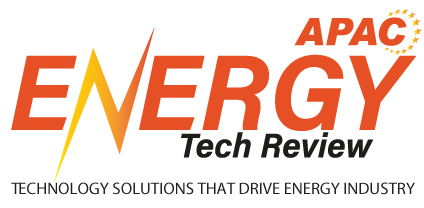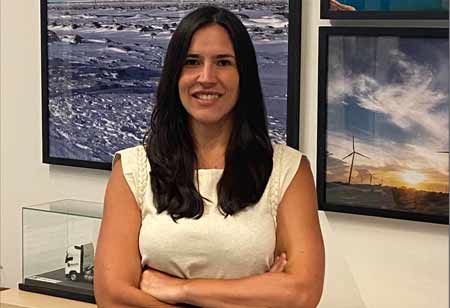Luzia Lux Lock is Head of Supply Chain & Transport, LATAM, at Vestas. With over a decade of experience in wind energy, she focuses on local supply chain development and technological innovation, driving efficiency and sustainability in the region’s energy transition.
In an exclusive interview with Energy Tech Review Latin America, Lock shared her personal views on the nuances of leadership and the importance of mentorship.
1. Could you please provide a brief overview of your professional background, as well as your current role and responsibilities at Vestas?
I am a postgraduate in Electrical Engineering. I started my career in the wind industry 16 years ago and have since held positions in Engineering, Commercial, Service, Project Management and Supply Chain. Currently, I am the Head of Supply Chain & Transport for Vestas in Latin America, leading the supply chain and transport management teams across the region and supporting all value chains: sales, Project Execution, and service.
2. How have your personal experiences shaped your leadership approach when navigating the complex logistics challenges unique to the LATAM market?
My grandfather and my mother are my main role models in life. They both taught me respect, ethics and care. I’ve observed my mother persevering through a career change in her 40s, showing me that with resilience and dedication, anything is possible. I’ve learned valuable lessons from my grandfather, such as how important all gears (work positions) are for a community: from picking up and treating the town’s residues up to the highest and most prestigious roles and how we are all the same, no matter where we come from.
3. How do you balance the pressures of maintaining high performance in supply chain operations with fostering a culture of continuous improvement and personal growth among your team?
I have been an enthusiast of Lean and Continuous Improvement for a good portion of my career. As much as I value high performance and delivery, I am also fully aware that mistakes are part of being human, so we need to embrace them. The way I persevere through difficult times is by looking at any challenge or mistake as both an opportunity to rise to the occasion but also to fail, reiterate and try again. The faster we get comfortable with making a mistake, fixing it and using it to get better for the next time, the better we become as a team.
“The faster we get comfortable with making a mistake, fixing it and using it to get better for the next time, the better we become as a team”
4. What role has mentorship played in your career, and how do you leverage those lessons to lead diverse teams in a rapidly evolving industry?
Mentorship has been one of the main pillars of my development as a leader. I have had the privilege of getting mentored organically (by observing great leaders who were close to me) and in structured programs. To me, the best ones come with true connection and with leaders who can be vulnerable and humanize leadership. I also had the great honor and responsibility to mentor people, and I believe I have probably learned more with them than they could imagine. Being close to people who are trying to become their best selves, no matter their seniority is both humbling and refreshing!
5. How do you integrate your understanding of local cultural nuances into strategic planning, ensuring your supply chain initiatives resonate across diverse markets in LATAM?
Effective Supply Chain management is essential in the wind energy sector due to the complexity and magnitude of the components involved. In this sense, Supply Chain is a rather organized and operational area, and Vestas offers outstanding global best practices and processes across the value chain. For such, I highly value being integrated into a global and structured Supply Chain Organization. On the other side, and in perfect synchrony to that, is the regional team; the real value of a regionally based supply chain organization is the proximity to where the business is happening: close to our customers, wind farms and factories! My team and I work every day close to our regional counterparts in sales, construction, and service teams, ensuring we maintain a high standard of delivery that is customized to Latin American needs.
6. Reflecting on your journey, which personal or professional challenge has influenced your approach to managing supply chain disruptions?
During my 16+ years in the wind industry, I have seen several market challenges—geopolitical, economical and even a pandemic. The companies and leaders I’ve seen persevere where the ones that were open and humble to keep adapting in volatile regions such as LATAM, it is imperative that we get comfortable with discomfort. The other special secret is teamwork: in uncertain environments, having multidisciplinary teams working towards one goal makes it easier to anticipate issues and pivot when needed.
7. What advice would you give to peers and budding professionals in the industry?
I would just say that there are several paths and paces to get to your own definition of professional and personal success. Whether you’ve been in supply chain your whole career and fell in love with it recently (like me), I am pretty sure you enjoy the “ups and downs” of this (career) road and you can take a few roadblocks and re-routes.
So, be true to yourself in the journey and value the journey itself—it is where the real fun is!












